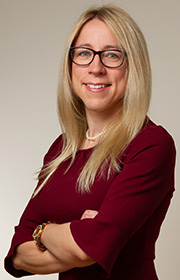ICYM: Communicating in times of change, according to the experts
By Victoria Roy, Department of National Defence
COVID-19 has brought many changes in employees’ work and home lives, including how we communicate. To alleviate the weight of the pandemic, change management experts came together to help internal communicators learn how to facilitate employee buy-in for new initiatives.
On October 7th, 2020, CCO hosted a virtual learning session on “Communicating in times of change.” The session, organized by members of the Internal Communications Community of Practice (InterComm Network - accessible only on the Government of Canada network) and attended by over 125 communicators, covered two very timely themes in the federal government, following the onset of the coronavirus pandemic: change management and employee wellness.
Four communication experts shared educational content (accessible only on the Government of Canada network) on change management, followed by a handful of tips for creating effective wellness messaging available online (accessible only on the Government of Canada network).

The session started with Laurie Maybury, Director of the Strategic Change Office, Canada Border Services Agency (CBSA). Laurie spoke on the differences between change management and communications, relating the two to a personal work experience about the implementation of a new software system at CBSA.
“At first,” Laurie said, “I relied on traditional communications techniques to get the message out: intranet, key messages, Qs and As, presentations.”
When there was little uptake of her communications messaging, Laurie learned at the last minute what was needed to ensure department-wide buy-in.
This led to various lessons learned, including: engaging and listening to employees; getting senior management support; equipping clients with communications tools; cascading key messages from top to bottom to improve, and using plain language.
Laurie’s revised approach and lessons learned along the way resulted in the successful roll-out and buy-in of the system that is still used by the department to this day.
Next up was Monique Rose, A/Director General, Strategic Management Directorate, Agriculture and Agri-Food Canada. She shared her knowledge and experience of change management through resource reduction exercises.
According to Monique, “Communications is a hugely important component of change management, but it’s not all of it. Communications is the process of helping employees become aware of the details of the change, while change management is the process of helping employees become willing and able to change.”
To ensure buy-in for an initiative, the change management expert said it is important to give employees a voice and make them a part of the change. Monique also adds that it is important to train managers to build their competencies, develop good relationship skills, work on building trust, and cultivate a relationship between internal communications and change management teams.
Lastly, Monique encourages communicators to bring the communications and change management teams to the table at the beginning of a project and not near the end.
In response to a question about change fatigue, Monique said, “fatigue does not come from the change itself, but rather from a lack of coherent and ongoing communication, especially for large projects.”
When asked what to do when communications is brought in late to a project, both women agreed it was never too late to support the managers with key messages, leadership meetings, feedback through formal or informal focus groups, and provide a staff perspective for more clarity.

The Change Management portion of the event ended with Shelley Rolland-Poruks, Manager of Corporate and Digital Communications, Impact Assessment Agency of Canada. She presented some practical tips (accessible only on the Government of Canada network) for working with clients to communicate changes to an internal audience.
To check out all of the valuable advice provided by the presenters, you can access the entire session on the CCO YouTube channel.
Page details
- Date modified: